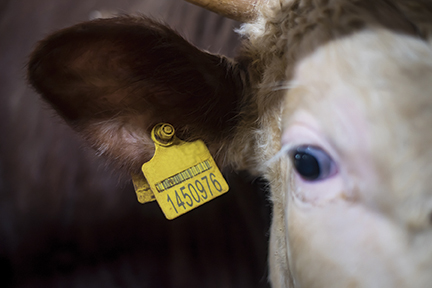MERRITT – The province has formally announced details of the new three-tier licensing structure for meat processors promised earlier this year.
The four existing classes of licences will be streamlined, with on-farm slaughter allowed across the province.
Provincially inspected A and B licensees will be consolidated in a new Abattoir class, with no restrictions on slaughter volumes or sales.
Two on-farm slaughter categories will exist: Farmgate Plus, allowing slaughter of up to 25 animal units (25,000 pounds) and off-farm sales anywhere in the province, and a Farmgate licence allowing slaughter of up to five animal units (5,000 pounds) and sales within 50 km of the licensee as well as within the licensee’s regional district.
The changes take effect October 1. New licences will be valid for five years. All licensees must take the SlaughterRight training course, launched in February as one of the first key changes following consolidation of meat inspection under the BC Ministry of Agriculture, Food and Fisheries. All facilities will be inspected at least once a year, with more frequent inspections according to assessed risk.
“We’ve been so pleased to see this announcement,” says Ava Reeve, executive director of the Small-Scale Meat Producers Association, which was first briefed on the changes at the end of March. “We appreciated being included in the process, and we’re happy to see many of our recommendations reflected in these new regulations.”
SSMPA hopes the new system will reduce processing bottlenecks and increase producer revenues.
“We look forward to seeing many farmers and ranchers take this opportunity to grow and diversify their businesses,” says Reeve.
Survey launched
SSMPA launched a survey in early July to get a better understanding of the sector and the impact of the licensing changes.
“There is no hard data available right now,” she explains. “Nobody is counting the small livestock producers. We need to know numbers and we need to know their concerns, so we can serve those producers.”
SSMPA board members are all producers and developed the survey, says Reeve.
“We also have regional representatives who are a new addition to the SSMPA team and they reviewed the survey as well,” she says. “The goal was to capture the really important questions for our sector.”
A small group of producers formed SSMPA in 2017 but membership is hard to pin down. However, Reeve says there are up to 3,000 small-scale meat producers across the province.
She wants to hear from both current and past meat producers to know the issues they face and, if they’re former producers, why they left the sector. This will help SSMPA develop proposals for solutions.
The survey is comprehensive and asks for producer details and concerns, including unlicensed slaughter.
“We know illegal slaughter is happening across the province and we would like to hear what the needs of those producers are, why they are choosing to do something that is so risky and whether there is anything we could change about the regulatory system to bring them into the fold,” says Reeve. “I don’t think there are many people who prefer to be doing their slaughter illegally, but there is some reason they are choosing to do that. We would like to know what those reasons are.”
The survey will also help assess the anticipated impact of the new regulations, adds Reeve, as well as any barriers small-scale producers perceive.
“In anticipation of the announcement, we made sure that our survey will help us study the impact and success of these regulatory changes,” says Reeve, noting that insurance coverage, restrictions on use of Agricultural Land Reserve properties and low profitability remain concerns.
All responses will be anonymous, giving many producers the first opportunity they’ve ever had to detail their practices and their reasoning honestly without fear of repercussions.
“Honest responses are absolutely essential to the value of the results,” says Reeve. “We are not a government organization. … We will not share raw data. All responses will be aggregated into a report.”
Despite the challenges of summer work, weather and wildfires, Reeve hopes for a good response. The survey takes just 15 minutes to complete.
The survey is open until August 20 and can be completed online at [smallscalemeat.ca/survey] or by calling 250-999-0296.


 Record temps kill poultry
Record temps kill poultry